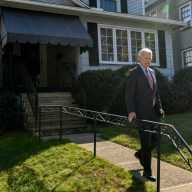tag:reuters.com,2016:binary_LOP000I4OB6LX-BASEIMAGE:960X540 fmt:jpegBaseline
tag:reuters.com,2016:binary_LOP000I4OB6LX-THUMBNAIL:160X90 fmt:jpegBaseline
tag:reuters.com,2016:binary_LOP000I4OB6LX-VIEWIMAGE:512X288 fmt:jpegBaseline
tag:reuters.com,2016:binary_LOV000I4OB6LX-STREAM:2000:16X9:MP4 fmt:H264/mpeg
tag:reuters.com,2016:binary_LOV000I4OB6LX-STREAM:300:16X9:FLV fmt:flashVideo
tag:reuters.com,2016:binary_LOV000I4OB6LX-STREAM:300:16X9:MP4 fmt:H264/mpeg
tag:reuters.com,2016:binary_LOV000I4OB6LX-STREAM:5128:16X9:MP4 fmt:H264/mpeg
tag:reuters.com,2016:binary_LOV000I4OB6LX-STREAM:512:16X9:FLV fmt:flashVideo
tag:reuters.com,2016:binary_LOV000I4OB6LX-STREAM:6756:16X9:MPG fmt:mpeg
tag:reuters.com,2016:binary_LOV000I4OB6LX-STREAM:700:16X9:FLV fmt:flashVideo
tag:reuters.com,2016:binary_LOV000I4OB6LX-STREAM:700:16X9:MP4 fmt:H264/mpeg
tag:reuters.com,2016:binary_LOV000I4OB6LX-STREAM:80:11X9:3G2 fmt:3gpp2MultimediaFile
tag:reuters.com,2016:binary_LOV000I4OB6LX-STREAM:80:11X9:3GP fmt:3gppMultimediaFile
tag:reuters.com,2016:binary_LOV000I4OB6LX-STREAM:8256:16X9:MP4 fmt:H264/mpeg
By Linda Sieg
TOKYO (Reuters) – From a shrinking population and a social welfare system creaking under huge ranks of retirees to a stagnant economy that is all they have ever known, Japanese youth have plenty to gripe about.
But despite a lowering of the voting age to 18 from 20 ahead of a July national poll, few see hope for a youth-driven movement like the one that energized U.S. Senator Bernie Sanders’ campaign for Democratic Party presidential nomination.
“Young people feel terribly powerless,” college student Kosuke Furui, 21, a member of a non-profit trying to educate youth about politics, told Reuters.
“Today’s politicians have become politicians with the support of the elderly. If a different sort of politician could emerge, as happened with Sanders, those who have shunned politics might go to vote.”
Reflecting their minority status in Japan’s fast-ageing society, voters aged 20-34 made up just 19 percent of the electorate in 2015 compared to the 55 percent who were 50 or older.
Lowering the voting age to the international norm will add about 2.4 million eligible voters, but youth are not only outnumbered by their elders, they are outvoted.
Turnout for twenty-somethings in the last national election was less than half the 68 percent for those in their 60s, reflecting a perceived lack of credible policy options, weak political outreaches to youth and an image of political activism still tainted by violent student protests in the 1960s.
On the surface, political parties including Prime Minister Shinzo Abe’s Liberal Democratic Party (LDP) are targeting youth, especially teens, ahead of the July 10 election for parliament’s upper house.
The LDP created a “manga” called “Kuni ni Todoke” (Notify the Country) about a female high school student who gets interested in voting to attract the attention of a cute male classmate. The manga, whose title echoes a popular comic, was trashed by some on the internet as demeaning and sexist.
The opposition Democratic Party has a VOTE18 website featuring, among other things, interviews with teenage models in school uniforms.
Such efforts have largely failed to resonate with young voters.
“They’re acting like they have all the knowledge and experience, and looking down on youth,” said Kensuke Harada, 30, founder of YouthCreate, another non-profit that aims to get politicians and youth to interact.
DEAF EARS
Of course Japan is not the only country where the young feel the views and votes are being overwhelmed by a more powerful older generation. Britain’s decision to leave the European Union angered many young people who preferred to remain, but Japan’s extreme aging makes the issue more acute.
Noting that enfranchised teenagers were about 2 percent of Japan’s electorate, popular young LDP politician Shinjiro Koizumi sought to persuade young voters they could make a difference by pointing to the “Brexit” vote.
“If the outcome had been different by about 2 percent, they might not be leaving”, Koizumi was quoted by Japanese media as saying.
Many young Japanese realize they’re getting short-changed under current policies.
Those under 45 will pay more into the social security system over their lifetimes than they will receive in benefits, with the gap significantly bigger for those under 20, due to a massive public debt. Many are also stuck in jobs less secure and lower paid than their elders.
Political parties have included generation-specific pledges in their platforms, ranging from grant-in-aid college scholarships to more daycare for the childbearing cohort.
None, however, is very clear about how to pay for all this without cutting elderly benefits, especially after Abe postponed a rise in an unpopular sales tax.
LDP policy chief Tomomi Inada says Japan should shift from a social security system that over-burdens the young to one where the wealthy of all ages pay more than those with less income.
“Those who can bear the burden should, without regard for age,” she told Reuters.
The disengagement of Japan’s young means reforming a social security system whose costs are fuelling an already mammoth public debt faces serious headwinds.
“All parties are saying, ‘Let’s put off the sales tax rise’,” YouthCreate’s Harada said. “No politician can say, ‘There isn’t enough money, so grin and bear it’.”
For their part, Japanese youth get little exposure to politics at school, a legacy of violent student demonstrations in the 1960s that gave political activism a bad name.
Surveys show young Japanese are more likely than their elders to support Abe’s conservative LDP, echoing a risk aversion that runs through mainstream Japanese society.
One student activist group, SEALDs (Student Emergency Action for Liberal Democracy), is hoping to mobilize liberal voters through grassroots activities.
First, though, SEALDs leader Aki Okuda just wants youth to vote. “Our home towns will disappear. We won’t be able to raise children and there will be no future,” Okuda said at a recent event in Tokyo, warning about Japan’s bleak, depopulated future. “Please, vote.”
The appeal, however, seemed to fall mostly on deaf ears.
“It seems to have nothing to do with me,” shrugged Yoshiki Kimura, 20, hanging out at the plaza where the event took place.
(Editing by Tony Munroe and Lincoln Feast)














